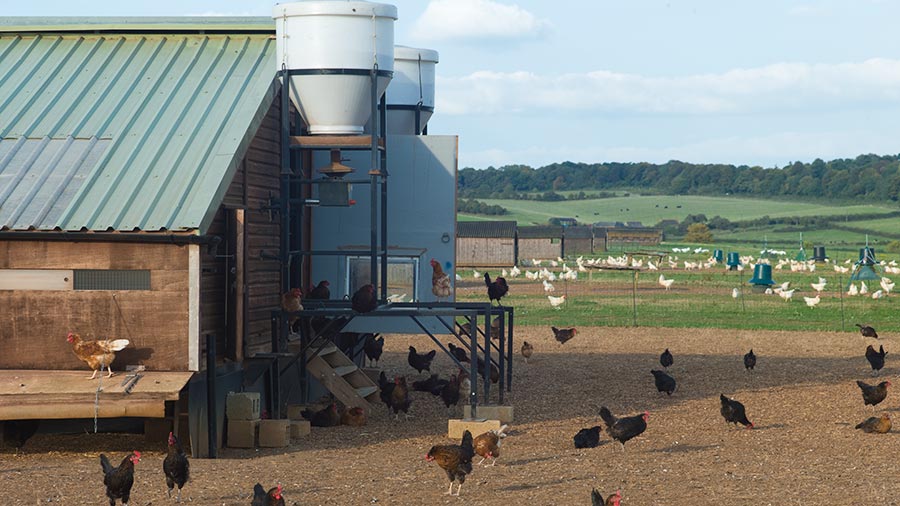Poultry housing order to be introduced across England
 © AdobeStock/Henk Vrieselaar
© AdobeStock/Henk Vrieselaar Defra has issued a Housing Order for poultry flocks across England amid rising risks of avian influenza infections.
The legally binding order will be introduced at 12.01am on Monday 7 November.
From that time onwards, all flocks of captive birds must be housed and staff must follow stringent biosecurity measures.
See also: Avian influenza prevention tips and how to handle an outbreak
The move was deemed necessary after the national risk of bird flu in wild birds was raised to “very high” and follows the imposition of a Great Britain-wide avian flu prevention zone two weeks ago.
Defra chief vet Christine Middlemiss said the government had seen a rapid escalation in avian flu cases.
In recent days, infection rates have increased rapidly with 70 cases occurring since the start of October.
This surge takes the overall figure for the 12 months since the outbreak began to 200 premises.
Dr Middlemiss said: ”We are now facing, this year, the largest-ever outbreak of bird flu and are seeing rapid escalation in the number of cases on commercial farms and in backyard birds across England.
“The risk of kept-birds being exposed to disease has reached a point where it is now necessary for all birds to be housed until further notice.
“Scrupulous biosecurity and separating flocks in all ways from wild birds remain the best form of defence.”
Dr Middlemiss urged birdkeepers to prepare for the tougher measures ahead of the 7 November deadline.
The new housing measures built on the strengthened biosecurity measures that were brought in as part of the avian influenza prevention zone (AIPZ) earlier this month.
Biosecurity measures
- Cleanse and disinfect clothing, footwear, equipment and vehicles before and after contact with poultry and captive birds
- Where practical, use disposable protective clothing
- Reduce the movement of people, vehicles or equipment to minimise contamination from manure, slurry and other products
- Use effective vermin control
- Keep records of mortality, movement of poultry and poultry products, and any changes in production
- Thoroughly cleanse and disinfect housing on a continuous basis
- Keep fresh disinfectant at the right concentration at all farm and poultry housing entry and exit points
- Minimise direct and indirect contact between poultry and captive birds and wild birds
- Ensure all feed and water is not accessible to wild birds
- Keep free-ranging birds within fenced areas, and fence off ponds, watercourses and permanent standing water
